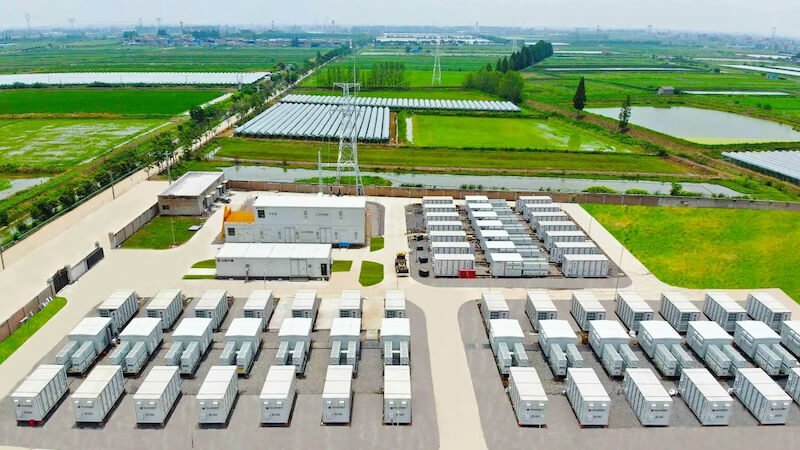
China recently put the world's largest sodium-ion battery storage facility into operation. The aim is to be able to store excess energy efficiently and reduce CO2 emissions.
The ongoing energy transition poses challenges, as cheap and emission-free green electricity is usually only available during the day. But what is the optimal solution for nights when the sun isn't shining or the winds are dying down? Battery storage systems that have stored excess energy from the grid during the day could then step in.
China has now reached a new milestone. On June 30, 2024, project managers put the world's largest sodium-ion battery storage system into operation. The demonstration project is located in Hubei Province and has a capacity of 100 megawatts with an output of around 200 megawatt hours.
Sodium-ion battery storage stores 100,000 kilowatt hours
The first phase of the project has an output of 50 megawatts with a capacity of 100 megawatt hours. The sodium-ion cells used come from the local company Zhongke Hina. The project represents an important milestone in the commercialization of sodium-ion battery storage systems.
42 storage units and 21 integrated inverters form the basis of the system. A 110 kV substation complements this. When fully charged, the system can store 100,000 kilowatt hours, which is enough to cover the electricity needs of around 12,000 households for a day during peak times. In addition, the system contributes to the reduction of 13,000 tons of CO2 emissions per year, which reveals both economic and ecological benefits.
Dependence on lithium decreases through new approach
Sodium-ion batteries are considered a promising alternative to lithium-ion batteries, especially given the limited and unevenly distributed lithium reserves. The technology could have a lasting impact on energy storage and represent a decisive step for China's energy system and the development of strategic new industries.
Zhongke Hina has already achieved several milestones in the development and application of this technology. The company plans to continue to work with partners to advance the commercialization of sodium-ion batteries and contribute to the sustainable development of the energy industry.
Also interesting:
Source: https://www.basicthinking.de/blog/2024/07/09/natrium-ionen-batteriespeicher/


